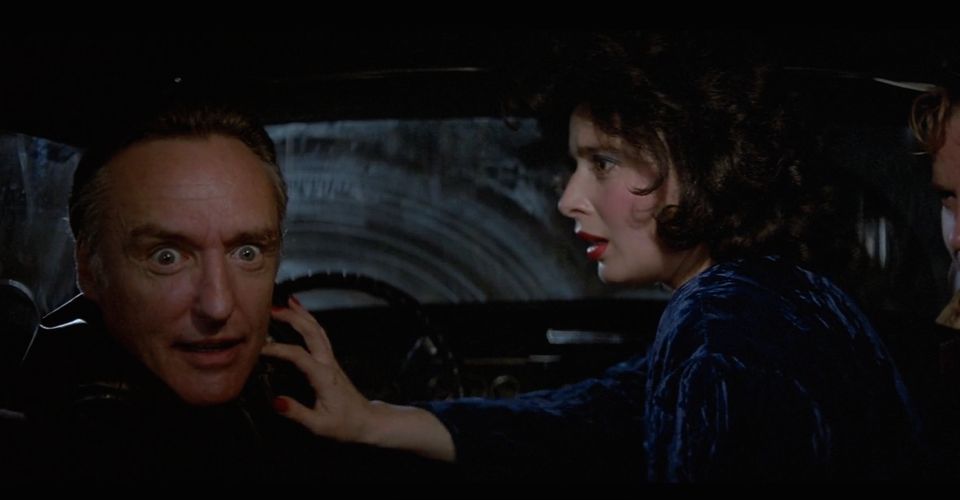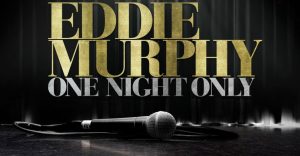Blue Velvet Theory: David Lynch’s Movie Is About Lincoln’s Assassination

Blue Velvet is one of David Lynch’s most provocative films, and it’s no secret the writer and director employs symbolism and leaves his work purposely open to interpretation. An interesting theory, and one with some truly compelling evidence, is that Blue Velvet is secretly about the Lincoln Assassination.
Blue Velvet follows Jeffrey Beaumont (Kyle McLachlan), a young college student who, after discovering a severed ear overrun with ants in a field, begins to uncover the dark underbelly of the idyllic small town of Lumberton, North Carolina where he lives. It’s filled with several weird moments involving sexuality and violence, often in the same scene, which shocked audiences and critics when it came out in 1986. Today, it is considered a masterpiece, and one of Lynch’s most important works.
Interestingly, some intriguing details in Blue Velvet seem to point to the Lincoln assassination. Although they are small, hidden details, when they are uncovered, the true meaning of the movie begins to come clear. After all, Blue Velvet is about uncovering dark secrets and the conspiracies of a small town, so it makes perfect sense for these details to reveal an alternative interpretation.
Lincoln Street

One of the more obvious facts in Blue Velvet that points to the Lincoln Assassination is Lincoln Street. In the movie, there is a close-up shot of the street sign. The camera lingers for a moment, giving the audience time for this to sink in. As it turns out Lincoln Street separates the good side of town from the bad.
Jeffrey is warned early on in Blue Velvet not to cross Lincoln Street. Presumably, it’s a dangerous side of town and not a good place for a young college student to venture. Of course, Jeffrey does cross Lincoln Street, determined to uncover the mystery of the severed ear, and gets into some serious trouble.
Frank Booth Shares A Surname With John Wilkes Booth

Another interesting fact is that the primary villain in Blue Velvet is Frank Booth (Dennis Hopper), who shares a surname with John Wilkes Booth. John Wilkes Booth is the man who assassinated President Abraham Lincoln. He was a stage actor and a confederate sympathizer. Unhappy with Lincoln’s move to abolish slavery, he and a small group plotted to have President Lincoln and several members of his cabinet killed. John Wilkes Booth was the man who personally came up behind the president and shot him in the back of the head, killing him.
Like John Wilkes Booth, Frank Booth is the one in his gang who commits the real acts of violence. During the scene in which Jeffrey is abducted by Frank, he is taken to see Ben, one of Frank’s criminal associates. Ben is an odd character who is holding Dorothy’s family hostage. Ben does not seem to be violent himself, but he is a co-conspirator with Frank. Although there are a lot of unanswered questions about the actual working of the gang, it appears that Ben may be the leader who tells Frank what to do.
Similarly, John Wilkes Booth was the one who performed the actual assassination of President Lincoln. While many of his co-conspirators took part in the planning process (like Ben does with Frank), they did not take part in the violence itself. Although Frank Booth is clearly psychotic, it’s possible that John Wilkes Booth may have been mentally unstable as well, which is yet more evidence that Blue Velvet is about the Lincoln Assassination.
Don Vallens’ Death Mirrors Lincoln’s Assassination

Don Vallens’ death at the end of Blue Velvet is eerily similar to Lincoln’s assassination. Despite the fact that the actual killing is never shown on screen, Jeffrey discovers Vallens’ body sitting in a chair, dead. It’s clear Don Vallens has been shot in the head. This end-result of a brutal act of violence is reminiscent of President Lincoln’s death, who was also shot in the head while sitting.
From there, Jeffrey is able to ambush Frank Booth and kill him, which mirrors the pursuit of John Wilkes Booth, who fled and hid in a barn. When law enforcement found his hiding spot, there was a standoff and John Wilkes Booth was fatally shot in the neck. In this way, both Booth characters receive bloody justice for their deeds.
What Blue Velvet’s Connection To Lincoln’s Assassination Really Means

With this final act of violence, David Lynch offers a further clue. By linking Lincoln’s assassination with the plot of Blue Velvet, he’s making a statement. However, like all of Lynch’s work, this message is up for interpretation.
One possibility is that the Lincoln assassination is used to represent the death of the American ideal and innocence. After all, Blue Velvet is about a small town that appears to be perfect. It’s always sunny and cheerful, and the birds (like the robin at the end of the film) are always chirping. That is, until Jeffrey uncovers the seedy underbelly that is the true identity of the town, and thereby America as well.
The United States is often seen as one of the best countries in the world, but beneath the surface is a history of genocide and crime. President Lincoln is a symbol of progress, and he was killed by someone who did not want that progress. In every town in America, small or large, there is a dark heart of crime and misdeeds.
Does This Theory Work?

The proposed theory may be taking things a little far to say that Blue Velvet is about Lincoln’s assassination. While there’s certainly some evidence to support the fact that Lynch put these details into his movie for a reason, they more likely point to a sub-message, rather than an overarching theme.
The overall theme of Blue Velvet, after all, is that things are always darker than they appear. It’s about unearthing the dark side of a seemingly idyllic small town. Blue Velvet is a film about hidden things, both in the world and in people’s personalities.
With that in mind, this theory does work in a sense. John Wilkes Booth was a stage actor who held a hidden hatred inside himself, much like Jeffrey discovers the dark side of his town and the sexual impulses within himself. Ultimately, Blue Velvet presents a voyeuristic world. The references to Abraham Lincoln’s assassination are fascinating, if not crucial for the interpretation of David Lynch’s work.
About The Author

















